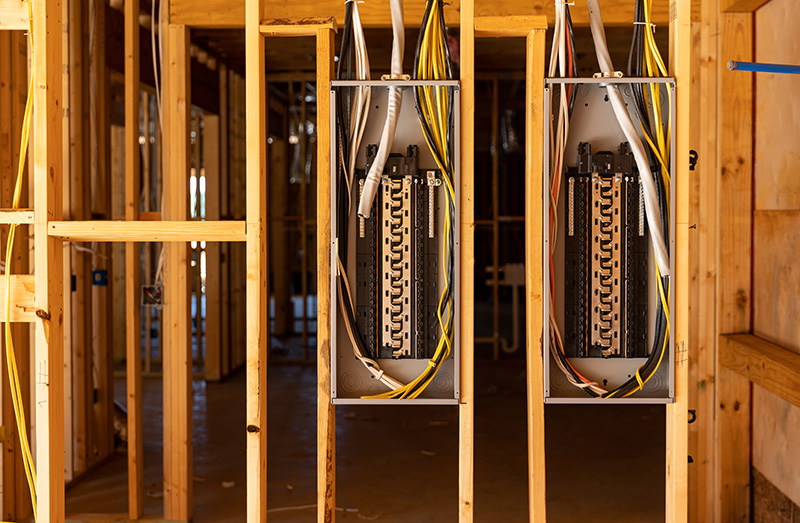Homeowners today are using more power than ever before, but their electrical systems haven’t always kept pace. This often leads to questions about safety, capacity, and modern upgrades. At McLean Electric Co., we believe that an informed homeowner is a safe homeowner. Here, we answer some of the most common questions we receive about electrical upgrades and what they mean for your Northern Virginia home.
What is a dedicated circuit and do I need one for my new home office?
A dedicated circuit is an electrical circuit that serves a single, high-wattage appliance or outlet. This is different from a general-purpose circuit that powers multiple lights and outlets in a room.
Do you need one? Yes, you likely do for a modern home office. High-demand devices like laser printers, multiple monitors, high-performance computers, and especially space heaters can easily overload a shared circuit, causing breakers to trip. A dedicated circuit ensures these devices have a stable and reliable power supply without disrupting the rest of your home’s electrical system, preventing work interruptions and potential fire hazards.
How do I know if my electrical panel is outdated?
Your electrical panel, or circuit breaker box, is the heart of your home’s electrical system. Key signs that it might be outdated and in need of an upgrade include:
- Frequent Breaker Trips: If you constantly have to reset breakers, it’s a sign that your panel is overwhelmed by your home’s electrical load.
- Fuse Box: If you have a fuse box instead of a breaker panel, it’s outdated and should be upgraded. This is one of the most common electrical issues in old homes.
- Insufficient Amperage: Older homes often have 60 or 100-amp service, which is no longer sufficient for modern appliances and air conditioning. Today’s standard is 200 amps.
- Visible Rust or Damage: Rust or corrosion on the panel or breakers can indicate moisture damage and lead to electrical problems.
What’s the difference between a GFCI and an AFCI outlet?
These are two crucial safety devices that protect you and your home from different electrical dangers.
- GFCI (Ground Fault Circuit Interrupter): This device protects people from electric shock. It monitors the flow of electricity and instantly trips when it detects a “ground fault”—meaning electricity is diverting from its intended path, such as through a person. If you find your GFCI outlets are not working, it is often because they have detected a fault. GFCI outlets are required in wet areas like bathrooms, kitchens, basements, and outdoors.
- AFCI (Arc Fault Circuit Interrupter): This device protects against electrical fires. An arc fault is a dangerous electrical discharge that can occur from frayed wires, loose connections, or damaged cords. AFCIs detect these arcing conditions and cut the power before the arc can generate enough heat to cause a fire. AFCI breakers are now required by code in most new home circuits, especially for bedrooms.
Can I install an EV charger if my home has an old electrical panel?
In most cases, no. An Electric Vehicle (EV) charger, particularly a Level 2 charger, requires a significant amount of dedicated power, often 40-50 amps. An old electrical panel (typically 60-100 amps) likely does not have the capacity to handle this new load in addition to your existing appliances. Attempting to do so can create a serious fire hazard. Before installing an EV charger, a licensed electrician must first assess your panel to determine if a full panel upgrade is necessary.
Get Expert Electrical Solutions from McLean Electric Co.
Understanding your home’s electrical system is the first step toward ensuring safety and efficiency. While these answers address some common questions, every home has unique electrical needs. For a personalized solution, trust the experts at McLean Electric Co. We can help you with all your electrical upgrades, from installing a new circuit to upgrading your panel, ensuring your Northern Virginia home is powered safely and reliably.

